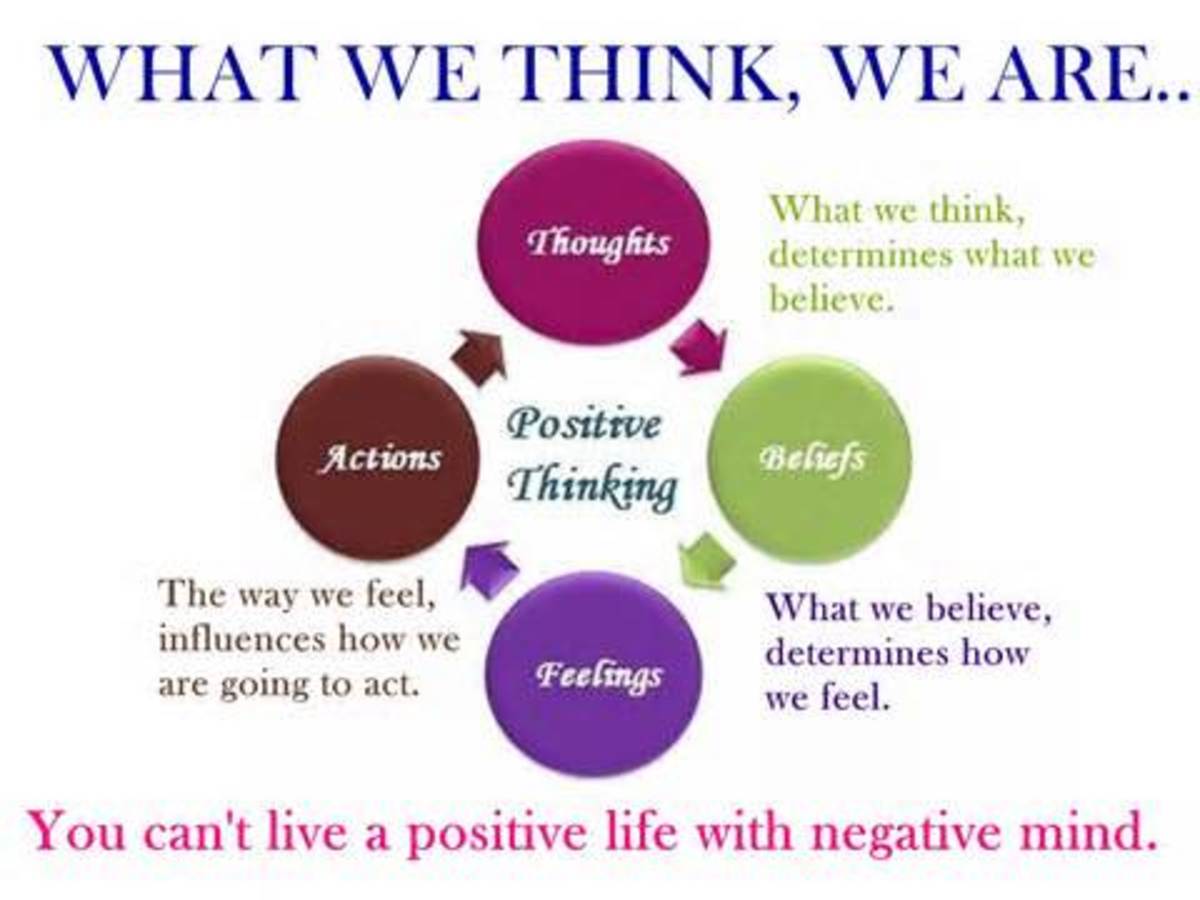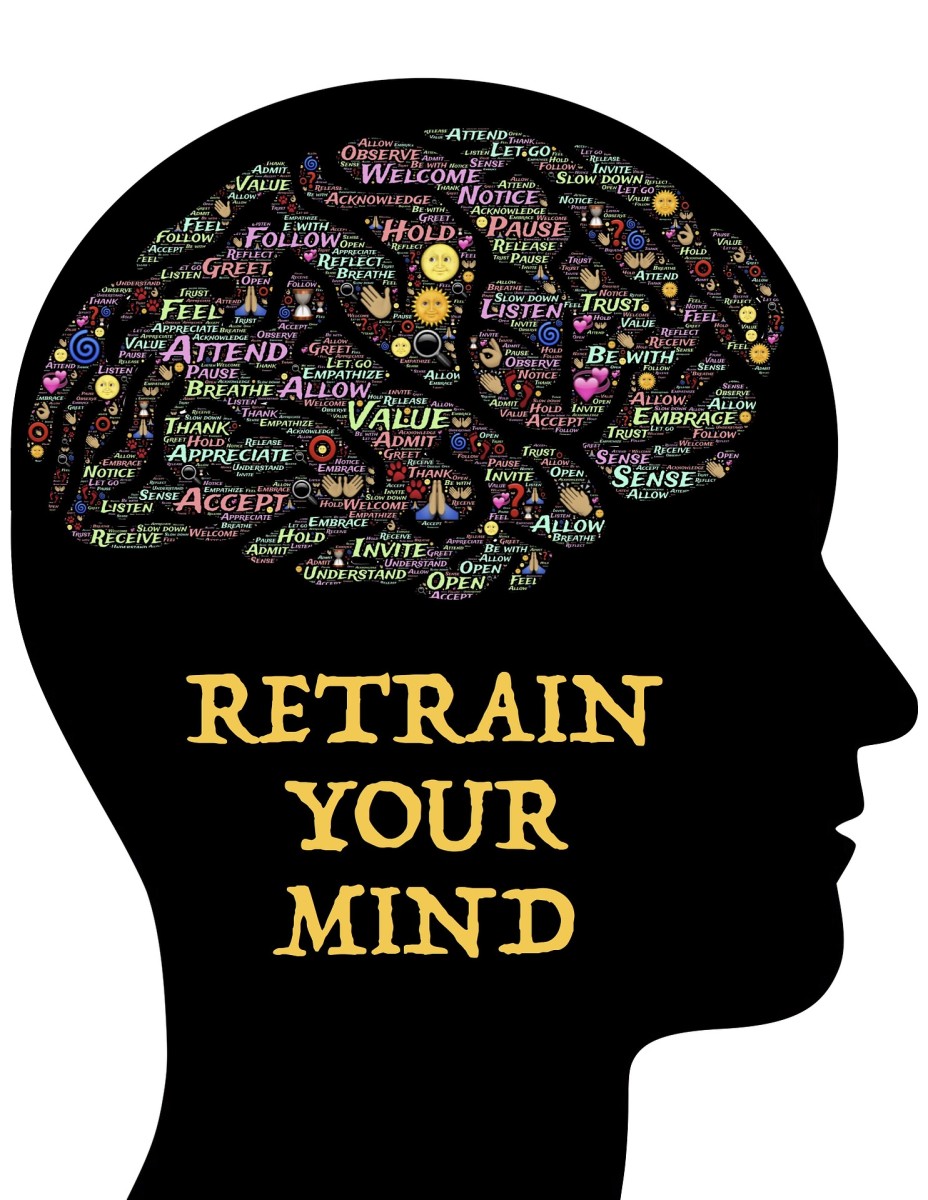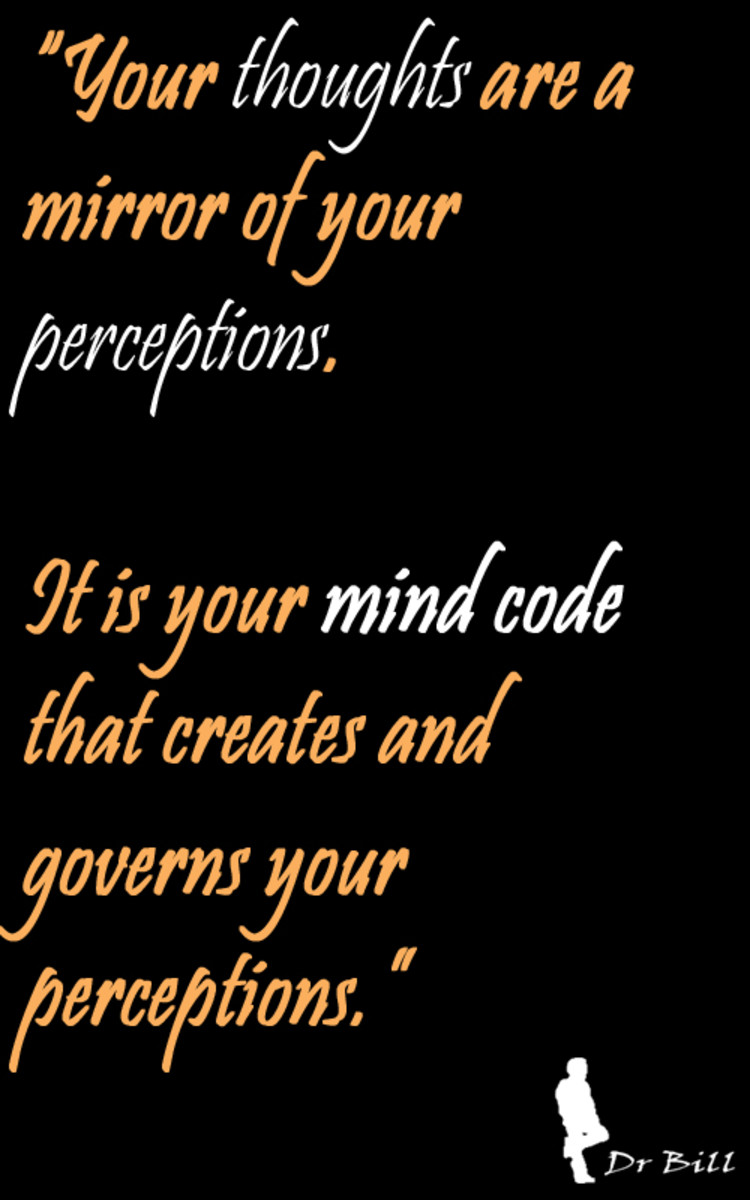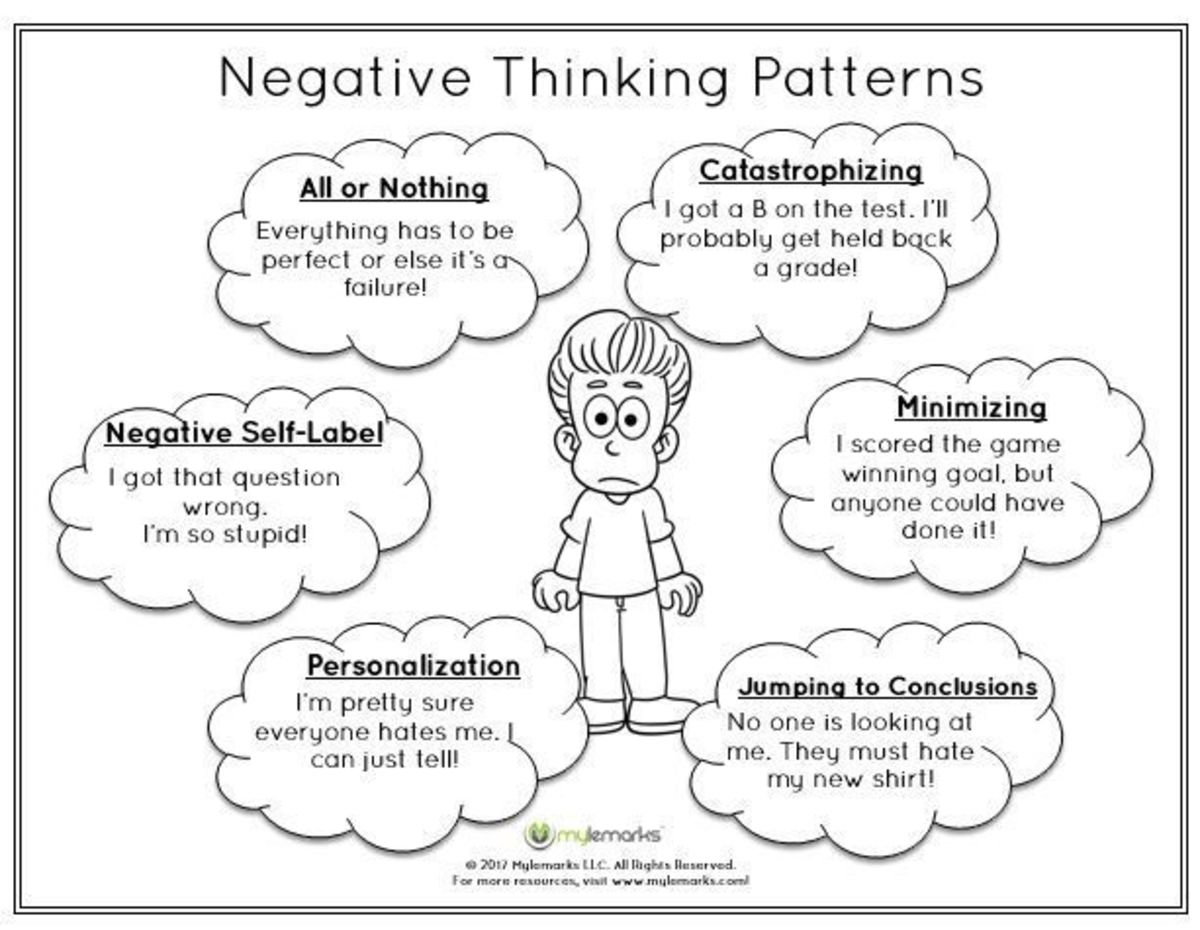Building a Mental Bank of Positive Thoughts
We Become What We Think
A mental bank is a term used to describe the process of filling your mind with positive thoughts in order to gain a more positive and joyful outlook on life.
The idea is to actively think positive thoughts and to read and listen to positive statements, thereby training your mind to not only think positively but also build up a barrier to the damage that can be done to your mood and outlook by the negative comments and ideas that regularly come our way.
Just like a real bank where one can deposit and withdraw money, the concept of a mental bank is that we can have a bank like section of our mind with a positive (abundance of good thoughts) balance or negative balance (like an overdrawn checking account).
Every time a person has a negative thought (I'll always be a failure at love), are the recipient of a negative comment (face it - you're a looser) or are surrounded by people with a negative outlook (life sucks, then you die), his or her supply of positive thoughts and aspirations is diminished.
As the negative and depressing thoughts continually crowd out the positive thoughts in your mind and eventually take over you will find you mood increasingly becoming depressed and your outlook on life around you becoming bleaker and bleaker.
How to Change Thinking Habits
To many, the scenario described above seems overly simplistic and even silly.
One or two objections usually come to mind immediately.
First, how can mere words or thoughts change one's personality?
Second, as every parent knows, children are born with a personality which means that a positive or negative outlook on life is heavily dependent upon heredity and to the extent that it is not determined by heredity the environment that surrounds a child in its early years finishes the molding of one's personality. Once grown, it is to late to make changes.
It is true that genetics and environment can play a major role in determining how we view the world.
However, just because our brains come pre-programmed at birth and those around us finish the programming of our brains while we are still very young, doesn't mean that our minds can't be reprogrammed. We do have considerable control over how our mind operates, we just have to invest the time and effort needed to reprogram our thought processes.
A first step in reprogramming our thought process is to stand back and examine how we think.
Socrates' admonished his students to know thyself and Jesus in the New Testament of the Bible continually instructed his followers to seek the truth and the truth will set you free.
In both cases we are being told to dig into our minds to learn how our mind works and why we think the way we do. Some people, when they encounter an obstacle, automatically give up while others continue to try to overcome the obstacle.
In the first case, the person does not succeed in solving the problem and simply gives up while mentally telling himself or herself I failed and cannot solve this. Meanwhile other people, if they do not succeed at first will mentally tell themselves the approach I just took obviously didn't work, what other way can I approach this?
Thomas Edison, founder of General Electric Corporation and inventor of the electric light bulb, motion picture photography, sound recording and literally thousands of other products, is known to have failed numerous times before he succeeded in each case.
But Edison, did not look upon these unsuccessful attempts as failures, instead his response was I have not failed. I've just found 10,000 ways that won't work.
Humans are creatures of habit and habits, both good and bad, are simply ways in which our brains are programmed to do certain things automatically without active thought on our part.
When I was a very young child my mother had to keep after me to brush my teeth in the morning and in the evening. Eventually, brushing my teeth upon getting up and before going to bed became a habit and, since then, I do it automatically without thinking. I have in effect programmed my brain to do this without my having to remember to do it each time.
The same is true of our thought processes - the way we analyze and react to common events. Just as Thomas Edison developed the habit of automatically thinking that's one more way that doesn't work here, what else can I try? every time he didn't succeed when trying to invent something new, those who automatically give up the first time something doesn't work have developed the habit of automatically telling themselves I failed again and never consider looking at the problem from a different angle or trying to solve it in a different way.
Habits can be formed either consciously, where we deliberately concentrate on doing something until it becomes automatic, or unconsciously where we simply do the same thing without thinking until it becomes a habit. In many cases we unconsciously mimic the way those around us do the same thing.
Jerry Seinfeld Show and Bad Thinking Habits
An excellent illustration of the concept of the memory bank is the old Jerry Seinfeld Show.
Jerry, Elaine and George all worked dilligently at programming their thinking to guarantee failure. Consciously, they did not want fail, but their thoughts when they encountered difficulties and what their friends kept telling them all worked to unconsciously program their minds to seek failure.
Every time something good happened to George in an episode, his mind immediately began looking for something wrong. He would get a new job and immediately began thinking and talking about failing. He would meet a new woman and immediately began thinking of reasons why she would eventually leave.
In the case of Jerry and Elaine they were both looking for the perfect mate. But, like George who developed the habit of automatically assuming that anything he did would end in failure, Jerry developed the habit of immediately looking for the flaws in whatever woman he meet. He was so obsessed with finding flaws that, not only did he always find them, he totally overlooked all of each woman's good characteristics.
Elaine's approach to her love life was about the same as Jerry's and not only did their own negative thoughts about each new job/relationship reinforce and strengthen these bad thought habits but their discussions with each other also emphasized the negative.
George continually described himself a failure and his best friend Jerry always agreed with him. Jerry would complain to Elaine and George about how difficult it was to find a good woman and they would agree that there just weren't any good ones left. All three of these people worked hard at depositing negative thoughts into their mental banks themselves as well as contributing negative thoughts into each others mental banks.
While the Seinfeld Show is great entertainment, much of its appeal and success lies in the fact that most of us can easily relate to these three characters as their actions are mostly greatly exaggerated versions of our own actions. We know what the situations portrayed are like as, to some extent, we have been there, done that ourselves and, while our experiences in these situations were not comfortable, it always feels good to see the exaggerated actions of others in these same situations.
For Jerry and the actors portraying George and Elaine these were simply roles to be played on the set and shed when they left the studio. For us, the viewers, the reflections of ourselves that we laugh at are real and to change will require reprogramming the habits that control how we think.
The concept of the mental bank can be a good tool for doing this.
Give it a try!
Some of My Related Hubs
- Maintaining a Positive Attitude After Losing Your Job
Having been in your position in a previous recession, I can emphasize with you and your predicament. However, the first thing to remember is that losing a job or being unemployed no longer carries the... - How to Show Love for Step Children
It is often said that the Lord works in mysterious ways and in allowing me to fulfill my desire to follow in the footsteps of my father, of which I am the first born of five, and have a large family of my... - Saying I Love You with Actions
The simplest way to tell someone that you love them is to simply say I love you. The more often you tell them that, the better. Of course the words have to be sincere and, to really be effective,...












